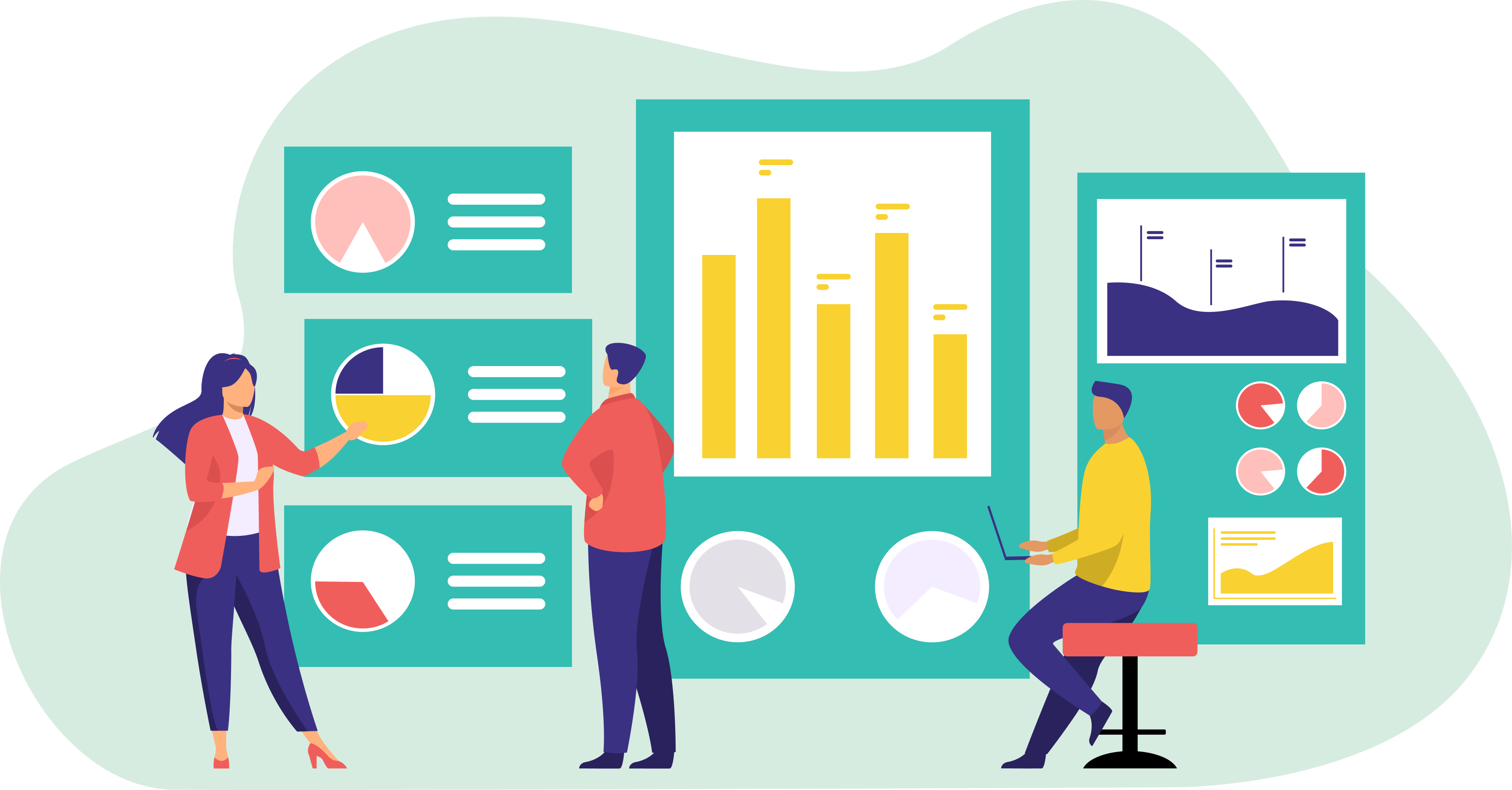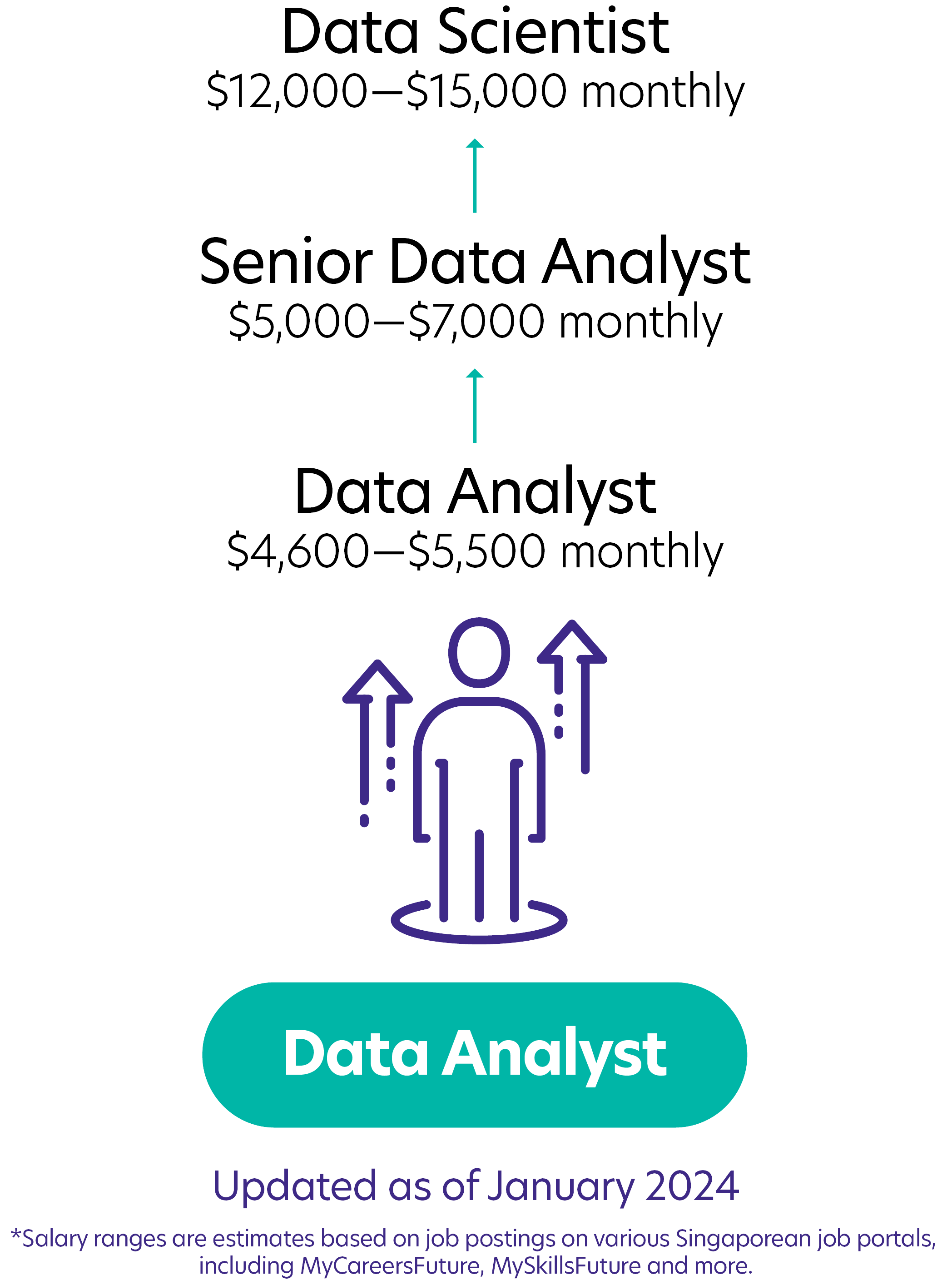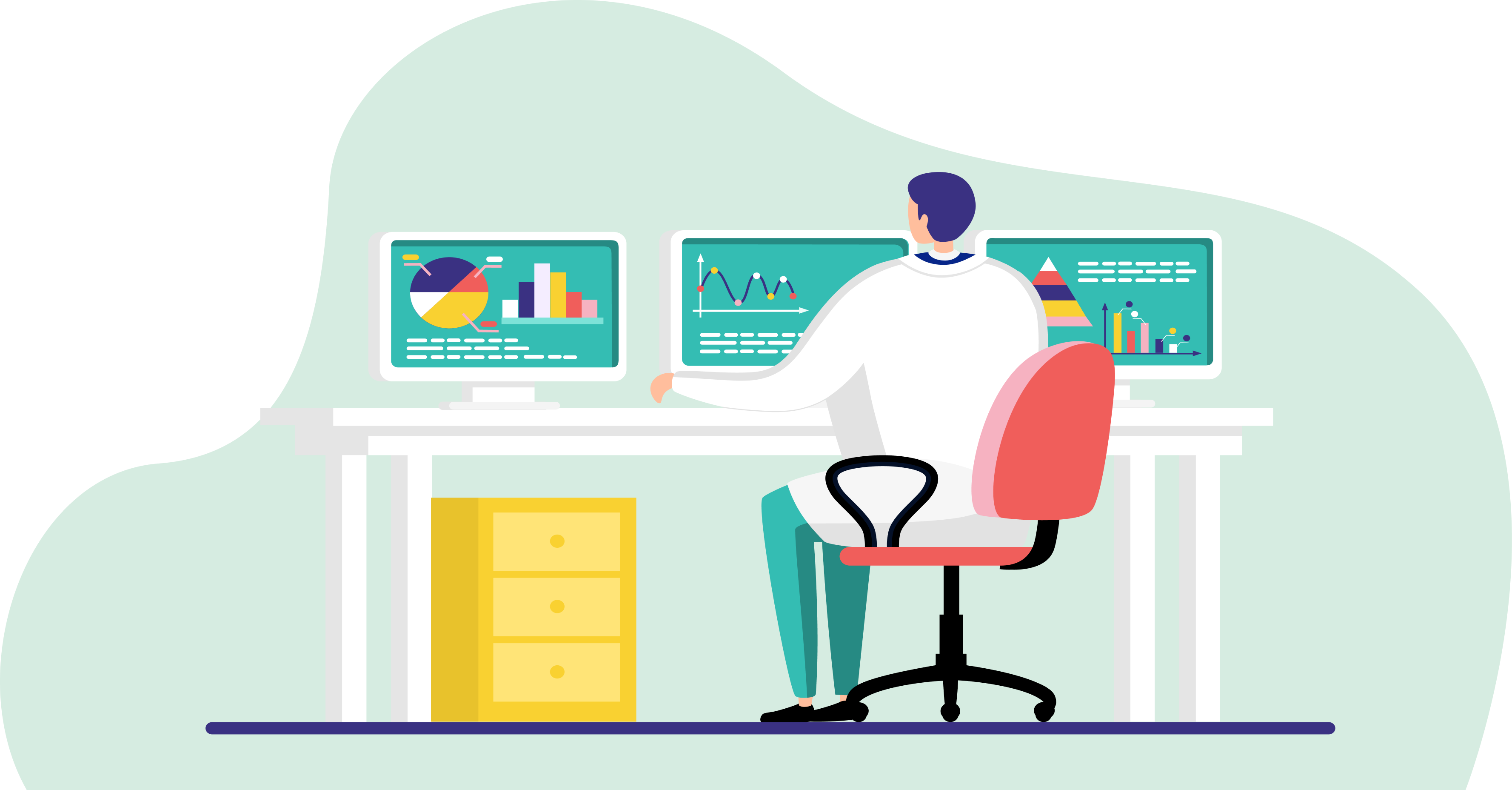
Data Analysts use data to help companies make better business decisions. They specialise in collecting, processing, and performing statistical analyses on large datasets.
Data Analyst Job Description
- Collect data from different sources.
- Clean and remove irrelevant information from raw data.
- Identify patterns and trends in data.
- Document results of analysis.
- Create and maintain databases and data systems.
Note
As Data Analysts are in demand in almost every industry, you will be able to work in a variety of industries such as Market Research, Finance and Healthcare!
What you should know about Data Analyst jobs in Singapore
Nature of Work
There will be lots of learning on the job as Data Analysts. You will have to deal with changing trends and technologies.Key advice
You will need to present results from your analysis using data visualisation and analytic tools.-
Entry RequirementsEntry Requirements
- A bachelor's degree in Computer Science or related fields is usually preferred.
- If you have some experience working with data, try to download public data sets from data.gov.sg and draw insights from them. It would certainly set you apart from the competition!
-
Possible PathwayPossible Pathway

Skills you need to pursue a Data Analyst career in Singapore
Analytics Software
Proficiency in software tools used for data analysis, such as Excel, SAS, SPSS, R and Python libraries.Programming Languages
Use Python, R, or SQL for data manipulation, statistical analysis, and automation of tasks.Machine Learning Skills
Use machine learning concepts and algorithms to analyse complex datasets and make predictive models.Business Innovation
Understand business processes and objectives and use data to drive innovation and business growth.Data Visualisation
Present data in a visually compelling way using tools like Tableau or Power BI.Communication
Strong verbal and written communication skills to articulate data insights and recommendations effectively.Problem-Solving
Ability to approach complex data challenges methodically and develop effective solutions.Critical Thinking
The capacity to critically assess data, identify patterns, and question assumptions.Creative Thinking
Creativity in exploring new ways to analyse data, present insights, and solve problems.Adaptability
Adjust to new technologies, methodologies, and shifts in business strategies or data trends.
“I transform data into a clean visible dashboard, allowing clients to make decisions fast and easily. ”
Joey Tay, Data and Analytics Consultant
Related Job Roles
Explore Other Programmes
Browse AllYou have bookmarked your first item!
Find it in My Discoveries with insights on your interests!












